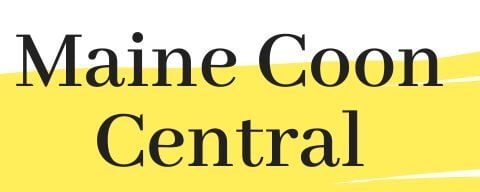Why Maine Coons Don’t Meow Like Ordinary Cats

Think Maine Coons are silent, majestic creatures who barely utter a sound? Think again! These gentle giants are far from mute – they simply don’t communicate with humans the way most cats do.
While a typical kitty might offer straightforward meows for food or attention, the Maine Coon prefers a symphony of chirps, trills, and purrs that sound more like conversation than demand. But why?
In this article, we’ll explore the variety of sounds Maine Coons use, what each one signifies, and why their vocal style is both expressive and uniquely charming.
Maine Coon Sounds
The table below shows a summary of all the various sounds your Maine Coon makes:
| Sound | Description | Meaning(s) |
|---|---|---|
| Meow | Soft, rare | Request, discomfort, or greeting |
| Chirp | Short, high-pitched burst | Hello, feed me, play with me |
| Trill | Rolling, melodic “brrr-up” sound | Happiness, excitement, “follow me” |
| Chatter | Rapid clicking of the jaws | Prey instinct, frustration, excitement |
| Purr | Deep, rumbling vibration | Contentment, trust, or self-soothing |
| Howl/ Yowl | Long, drawn-out wail | Loneliness, stress, illness, and senior confusion |
| Hiss/ Growl | Sharp exhalation, guttural tone | Fear, territoriality, warning |
Let’s delve into the details and learn about each different Maine Coon sound:
Meowing – Rare But Purposeful
Unlike many cats, Maine Coons don’t meow constantly. When they do, it’s usually deliberate and tied to a specific need.
Their meows tend to be softer and lower-pitched than the sharp calls of smaller breeds. Owners often hear them meow:
- At mealtime, a gentle reminder that the food bowl needs filling.
- When greeting, a short, soft meow when you return home.
- To signal discomfort – a different, more urgent meow if something feels wrong.
Think of a Maine Coon’s meow as a rare but clear statement, rather than casual chatter.
Chirping – The Signature Maine Coon Sound
Chirps are high-pitched, short bursts that sound a bit like a bird. This is the vocalization Maine Coons are most famous for.
They use chirps to:
- Greet their humans: A friendly “hello” when you enter a room.
- Request food or play: A chirp can be a polite nudge for attention.
- Express excitement: Often heard when you jingle their favorite toy.
These sounds likely mimic the communication between mother cats and kittens, reinforcing the strong bond between Maine Coons and their humans.
Trilling – Musical Conversation
Trills are longer, rolling sounds, like a mix between a chirp and a purr. They are one of the most charming aspects of Maine Coon communication.
Trills usually mean:
- Follow me: Your cat may trill while walking away, asking you to come along.
- I’m happy: Trilling while rubbing against your legs shows affection.
- Excitement: Trills may accompany playtime or greetings after an absence.
Maine Coons often trill in two-way “conversations” with their humans, responding to your voice with their own melodic input.
Chattering – The Hunter’s Frustration
When a Maine Coon sees birds or squirrels outside, they often make a rapid clicking or chattering noise with their jaws.
This fascinating sound is believed to be:
- Predatory mimicry: Some experts suggest cats mimic bird calls out of instinct.
- Frustration: Expressing irritation at prey they cannot reach.
- Excitement: The thrill of watching potential prey.
This sound highlights the breed’s hunting heritage; even pampered indoor Maine Coons still retain strong predator instincts.
Purring – Deep, Rolling Vibrations
A Maine Coon’s purr is distinctively powerful, often described as a “motorboat engine.”
While purring is usually a sign of contentment, it can also mean:
- Relaxation: during cuddles or nap time.
- Bonding: purring while lying near you to show trust.
- Self-soothing: cats sometimes purr when stressed or in pain.
Always observe context: if purring is paired with restlessness or illness, it may indicate discomfort rather than happiness.
Howling / Yowling – Emotional Outbursts
This loud, drawn-out cry is far less common but very telling.
When a Maine Coon howls or yowls, it usually means:
- Loneliness: Calling for company when left alone.
- Stress: Triggered by moving house, new pets, or changes in routine.
- Medical issues: Senior cats may yowl due to confusion, thyroid disease, or pain.
If your Maine Coon starts howling frequently, especially at night, it’s worth consulting a vet.
Hissing And Growling – Warning Calls
Maine Coons are generally calm, but when they hiss, it’s a clear “back off” signal.
Reasons include:
- Fear: A reaction to a strange animal or sudden noise.
- Territoriality: When another cat invades their space.
- Pain: If injured or handled too roughly.
Growls, often paired with a hiss, are a step further, a deep warning that should always be respected.

